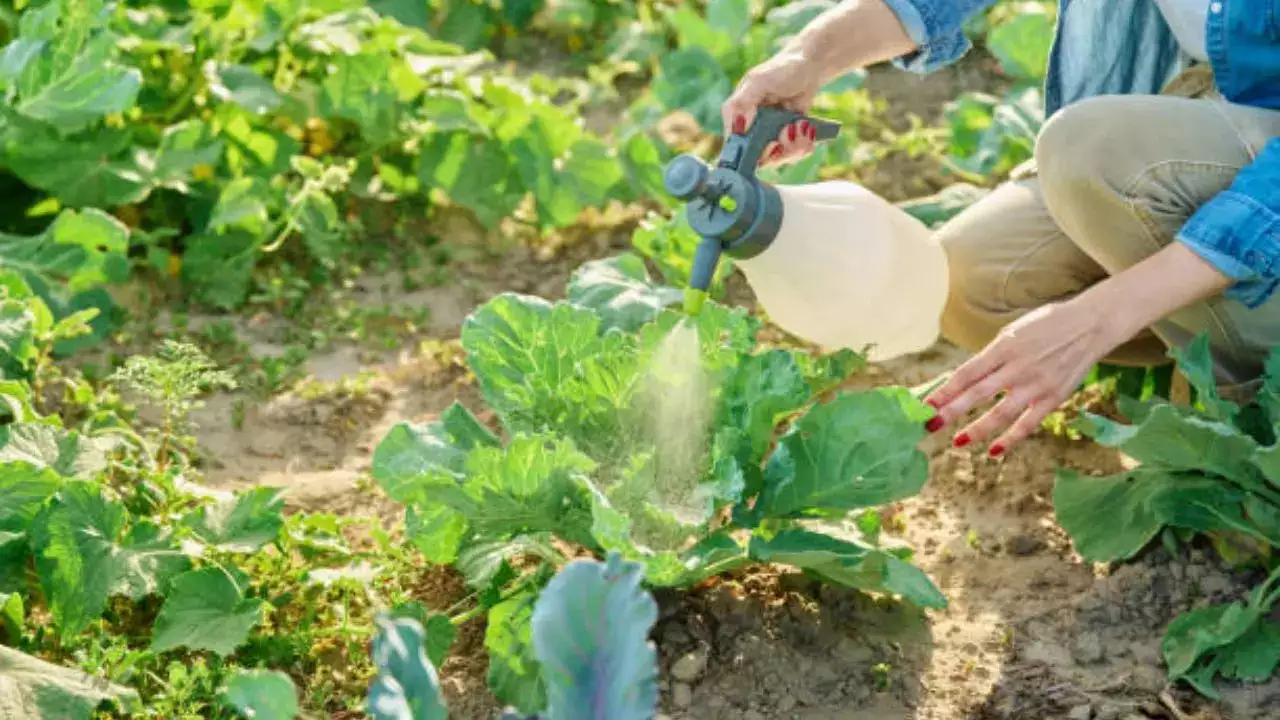
Teenage Girl Dies After Eating Poisonous Cabbage: Are Your Veggies Full Of Pesticides? (Image Credits: iStock)
Green leafy vegetables are said to enhance our health and contribute to our well-being. However, recently a shocking incident has made us question this belief. In Sri Ganganagar district, a 14-year-old girl tragically lost her life after unknowingly eating a pesticide-loaded cabbage leaf from her own field. She unknowingly plucked a leaf on December 18 and ate it. After walking for a while, when the girl started feeling nauseous, she came home and told her family about her ill health. Later, she was admitted to a private hospital, where after investigation it was revealed that the girl's uncle sprayed a pesticide on the cabbages grown in the field, which became the reason for her illness and death too.
The Role of Pesticides in Agriculture
Pesticides are widely used in agriculture to protect crops from pests and diseases. However, improper use, excessive application, or failure to wash produce thoroughly can leave harmful residues on vegetables, posing significant health risks.
Some common pesticides used in Indian agriculture include:
- Chlorpyrifos: Often used in vegetables like cabbage and cauliflower.
- Endosulfan: Though banned in many countries, it is still used in some regions.
- Carbaryl: Commonly applied to fruits and vegetables.
- Malathion: Widely used on leafy greens and other crops.
- Monocrotophos: A highly toxic pesticide frequently detected in Indian produce.
Health Risks Associated with Pesticide Exposure
Pesticides can have both acute and chronic effects on health. Immediate exposure, like in the case of the Sri Ganganagar tragedy, can result in symptoms such as nausea, vomiting, dizziness, and in severe cases, death.
Chronic exposure to pesticide residues can lead to long-term health issues, including:
- Neurological Problems: Pesticides can affect the nervous system, leading to disorders like Parkinson’s disease.
- Hormonal Disruptions: Many pesticides are endocrine disruptors that interfere with hormonal balance.
- Reproductive Issues: Prolonged exposure can impact fertility and cause developmental issues in children.
- Cancer Risk: Some pesticides, like chlorpyrifos and endosulfan, have been linked to an increased risk of cancer.
Indian Vegetables High in Pesticides
Several studies and reports indicate that some vegetables in India are more prone to pesticide contamination than others. Here are five commonly consumed vegetables that often have high pesticide residues:
1. Cabbage
- Frequently sprayed with pesticides like chlorpyrifos to combat pests. Improper washing can leave harmful residues.
2. Spinach
- A staple leafy green, spinach is prone to pesticide contamination due to its delicate leaves that attract pests.
3. Okra (Bhindi)
- Often treated with multiple pesticides to prevent infestations, making it one of the most contaminated vegetables.
4. Cauliflower
- Pesticides like endosulfan and monocrotophos are commonly used to protect this crop.
5. Brinjal (Eggplant)
- Known for high pesticide use, brinjal often carries residues of harmful chemicals.
How to Keep Your Vegetables Pesticide-Free
Ensuring that the vegetables you consume are free from harmful pesticides is vital for your health. Here are some practical and effective steps you can take:
1. Wash Thoroughly with Water
- Rinse vegetables under running water for 30–60 seconds.
- Use a soft brush to scrub hardy vegetables like carrots and potatoes.
2. Soak in a Baking Soda Solution
- Mix 1 teaspoon of baking soda in 1 litre of water.
- Soak vegetables for 15–20 minutes and rinse thoroughly.
- Studies show this method removes most surface pesticide residues.
3. Use Vinegar Soak
- Add 1 part white vinegar to 3 parts water.
- Soak vegetables for 15 minutes before rinsing.
- This method is particularly effective for leafy greens.
4. Peel When Possible
- Remove the outer layers of vegetables like cabbage, lettuce, and onions.
- Peeling eliminates the most pesticide-contaminated parts.
5. Opt for Organic Produce
- While not completely pesticide-free, organic vegetables have significantly lower pesticide levels.
- Support local farmers who practice organic or sustainable farming.
6. Grow Your Own Vegetables
- Start a home garden to control what goes into your food.
- Use natural pest deterrents like neem oil or companion planting instead of synthetic pesticides.
Get Latest News Live on Times Now along with Breaking News and Top Headlines from Health and around the world.